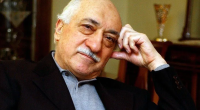Irrationality rules

Date posted: December 28, 2013
JOOST LAGENDIJK
It is almost impossible to keep up with the hallucinatory speed of all the twists and turns in the corruption scandal that has dominated the agenda in Turkey for 10 days now.
As I’m aware of the fact that this article will only be published two days after its writing, I will try to keep some distance from the avalanche of breaking news that is constantly and mercilessly sweeping down on everybody at home and abroad who is trying to make sense of what is happening in Turkey these days.
Having been in the Netherlands for Christmas, my observations are based on, among other things, the many questions I got from journalists and others interested in the dazzling developments in Turkey. Many of them, and this also applies to other Europeans, don’t know the details of the corruption allegations and most have, for instance, no clue what the Gülen movement is and how it relates to the Justice and Development Party (AKP). What they do know is how the Dutch government would — or according to them should — react if a similar crisis arose in the Netherlands. Their curiosity and, often, concern about the current state of affairs in Turkey is therefore based on the yawning gap between the way a comparable emergency would be handled in the Netherlands and the way the present sequence of events is being handled in Turkey.
Allegations of corruption or other financial wrongdoing are nothing new in politics. They pose a big challenge to every government that faces them and there is no standard method to limit the damage. Most of the time, ministers under suspicion are forced to resign, not because they are guilty but because they can’t function when under investigation. For that reason, the fact that Erdoğan assembled a new team of ministers last week was considered a normal, albeit belated, reaction to the allegations. This change of personnel’s potential to change the mood for the better was, however, fatally undermined by two other countermeasures of the ruling party: the witch-hunt for the police chiefs and prosecutors responsible for starting the investigations and the accusations leveled at so-called foreign and domestic “dark forces.”
Nobody outside of Turkey understands why a government that claims to be innocent and portrays itself as the victim of dirty conspiracies uses every legal — and according to many illegal — means at its disposal to stop further investigations and punish those who gathered the evidence or wrote the indictments. Instead of allowing the judiciary and the police to perform their duties and preparing a plausible reply, the Turkish government has been actively violating the separation of powers between the executive and the judiciary. That course of action has not only alarmed many in Turkey but has also led to strong reactions in the rest of Europe. It suggests that, apparently, the prosecutors have a point and can only be stopped by setting in motion a dramatic clash in the judiciary that is gravely harming Turkey’s efforts to become a state based on the rule of law.
What definitively put off most non-Turks were the repeated invocations of an “international plot” originating in the US or Israel, supported by collaborators within the country, aimed at stopping Turkey’s rise to global prominence. It seems the prime minister and his loyal entourage have come to the conclusion that blaming all kinds of obscure lobbies went down quite well after the start of the Gezi Park protests. So why not repeat this classic line of defense? My guess is that this time around the amount of incriminating evidence is so overwhelming that even those AKP voters who were willing to buy the prime minister’s arguments in June are now unconvinced.
I’m afraid it remains difficult for many Erdoğan supporters to understand how damaging these kinds of conspiracy theories are for Turkey’s image abroad. The overriding impression that many in the Netherlands and elsewhere get when listening to these kinds of wild and irrational theories is that at the moment Turkey is ruled by a government driven by anger and a desire for revenge, a government unwilling to play by the book and unable to reflect on its own mistakes.
Source: Today's Zaman , December 28, 2013
Tags: Democracy | Hizmet (Gulen) movement | Turkey |
























